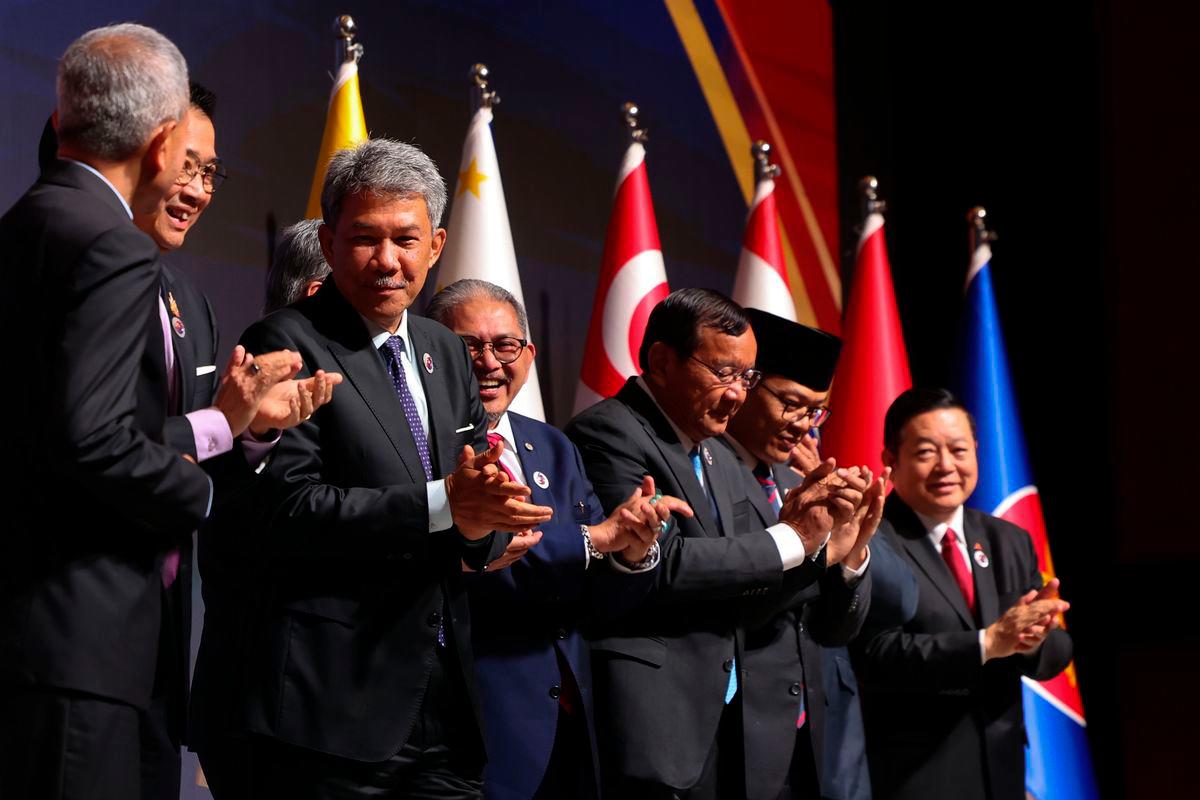KUALA LUMPUR: It is imperative for ASEAN to strengthen regional cooperation, harmonise legal frameworks, and enhance information-sharing mechanisms among its member states in response to escalating security challenges, particularly the surge in cybercrimes, said Foreign Minister Datuk Seri Mohamad Hasan.
In his opening remarks at the 29th ASEAN Political-Security Community (APSC) Council Meeting today, Mohamad emphasised that comprehensively addressing these issues is critical to safeguarding the well-being of ASEAN citizens, as well as ensuring regional security and prosperity.
“Countless ASEAN citizens have fallen victim to these deceptive schemes and have been trafficked to work as forced labour in scam centres. They have lost their freedom, their dignity, and their life savings. These widespread illegal online operations also have a detrimental impact on the economies of ASEAN member states.
“In recent years, ASEAN has stepped up efforts to curtail the threat of cybercrime. Nevertheless, the crime syndicates have repeatedly demonstrated their ability to relocate or rebuild their operations,” he said at the meeting held in conjunction with the 46th ASEAN Summit at the Kuala Lumpur Convention Centre (KLCC) here.
According to Mohamad, ASEAN is navigating an increasingly complex regional and global landscape, shaped by intensifying geopolitical competition, economic uncertainty, and transnational challenges that underscore the fragility of the current world order.
He said that the rapid advancement of technology and the expanding domain of cyberspace not only necessitate the safeguarding of the region’s digital ecosystem and networks but also require that their resilience be fortified against emerging threats.
Meanwhile, Mohamad noted that the APSC Council is currently conducting its end-term review of progress made under the APSC Blueprint 2025, with the insights gained expected to shape the development of the APSC Strategic Plan 2045, which ASEAN leaders are anticipated to adopt tomorrow as part of the ASEAN Community Vision 2045.
“Since our last APSC Council Meeting in Vientiane in October 2024, we have witnessed tangible progress across the work of the APSC sectoral bodies. These efforts have continued to contribute meaningfully to ASEAN’s community-building objectives and regional integration.
“The APSC Council Report before us today reflects the breadth and depth of our collective endeavours,” he said.
He explained that the APSC Strategic Plan 2045 will serve as a vital compass for ASEAN’s political-security cooperation over the next two decades, firmly anchored in the values of peace, resilience, and people-centred growth.
Mohamad Hasan also emphasised that the region stands at a critical juncture as ASEAN approaches the conclusion of the APSC Blueprint 2025.
The 46th ASEAN Summit and its related meetings, held under Malaysia’s 2025 Chairmanship theme ‘Inclusivity and Sustainability’, are expected to address a wide range of pressing regional and international issues, including political and security matters.
This year marks Malaysia’s fifth time chairing the regional bloc, having previously held the ASEAN chairmanship in 1977, 1997, 2005, and 2015.
In conjunction with the summit, two pivotal high-level engagements, namely the 2nd ASEAN-GCC Summit and the inaugural ASEAN-GCC-China Summit, will also be convened, serving as strategic platforms to advance regional and inter-regional cooperation.









